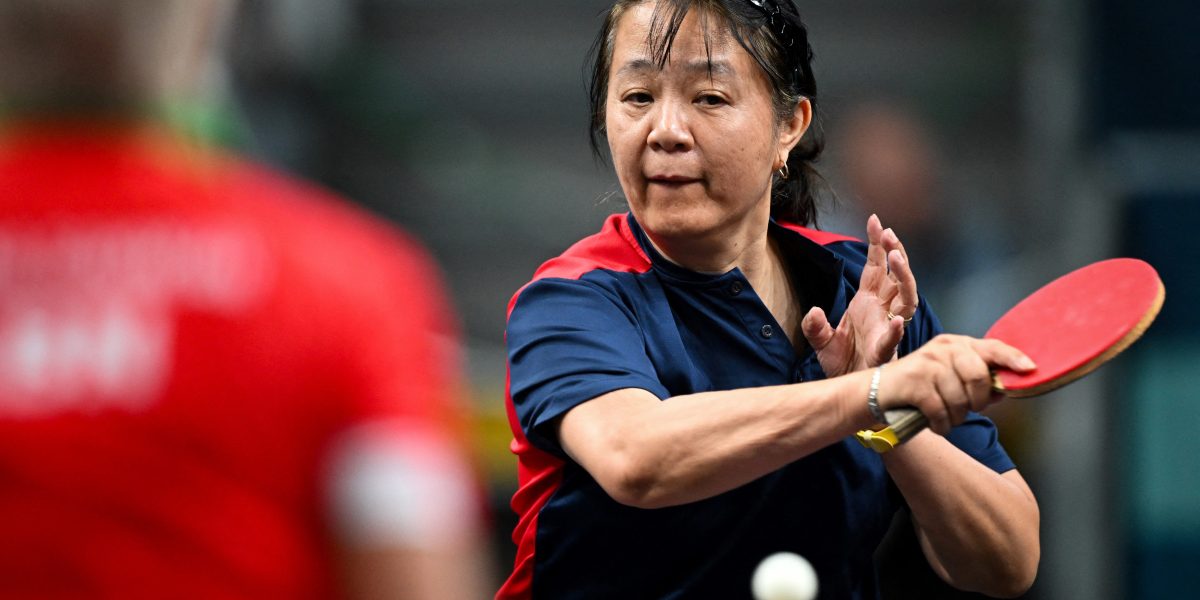Zhiying Zeng was born in 1966 to a mom who coached table tennis. She picked up a paddle as soon as she could hold it, joined a junior elite team at a military sports school in Beijing at age 11, and turned pro at age 12.
And like most other young athletes, she had aspirations to make the Games: “It was the biggest dream of my life,” she told CNN Sport. “Even when I was a little girl and they would ask me what my dream was, I would say: ‘Become an Olympian.’”
But it wasn’t until this summer—after a 20-year hiatus from the sport at one point and a move from China to Chile—that she finally achieved that goal: Zeng made her Olympic debut in Paris at age 58, making her one of the oldest athletes at this year’s Games.
Although she lost to Mariana Sahakian of Lebanon 4-1 in the preliminary rounds on July 27, Zeng still has plenty of reasons to be proud. Her husband and two adult sons were there to cheer for her, according to Reuters. And her 92-year-old father in China lived to see his daughter’s lifelong dream come true.
“At my age, you have to play with happiness, not anguish,” Zeng told The Guardian, adding that she was proud to play for Chile, where she goes by the name Tania. “I love this country. I didn’t reach my dream in China, and I have here. It’s important not to give up.”
According to CNN Sport, Zeng was coached by her mom until age 9. Before she turned pro, she won the national junior championship as well as several regional tournaments. In 1983, when she was 16, she was called up to the Chinese national team—a powerhouse in the sport.
Then, a rule change in 1986 threw her off her game. Previously, the two faces of the paddle—which have different effects on the spin, speed, and power of the ball—could be the same color. Zeng would often rotate the paddle to throw her opponents off.
But the “two-color rule” specified that only one side of the paddle could be black, removing her competitive advantage. “The rule killed my game,” she told The Guardian. “I felt weak, psychologically and technically.”
So 38 years ago, she left the national team and retired. In 1989, she moved to Chile to coach children. She started playing again, briefly, in 2003 because she thought her 13-year-old son was playing too many video games and wanted to introduce him to something more active.
The strategy worked—her son developed his own passion for table tennis—and Zeng still had skills, winning a few tournaments. But she stopped again when her son was old enough to train on his own.
For the next 20 years, she focused mainly on running her furniture store in Iquique, a town in northern Chile. It wasn’t until the COVID-19 pandemic put the country on lockdown that she picked up a paddle again. She bought a table just to stay active and played alone for hours a day.
